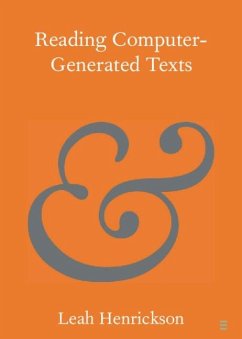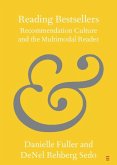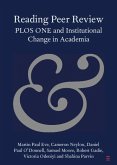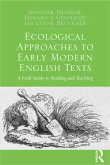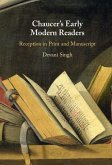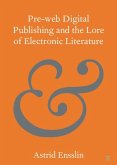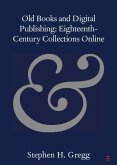Natural language generation (NLG) is the process wherein computers produce output in readable human languages. Such output takes many forms, including news articles, sports reports, prose fiction, and poetry. These computer-generated texts are often indistinguishable from human-written texts, and they are increasingly prevalent. NLG is here, and it is everywhere. However, readers are often unaware that what they are reading has been computer-generated. This Element considers how NLG conforms to and confronts traditional understandings of authorship and what it means to be a reader. It argues that conventional conceptions of authorship, as well as of reader responsibility, change in instances of NLG. What is the social value of a computer-generated text? What does NLG mean for modern writing, publishing, and reading practices? Can an NLG system be considered an author? This Element explores such question, while presenting a theoretical basis for future studies.
Dieser Download kann aus rechtlichen Gründen nur mit Rechnungsadresse in A, B, BG, CY, CZ, D, DK, EW, E, FIN, F, GR, HR, H, IRL, I, LT, L, LR, M, NL, PL, P, R, S, SLO, SK ausgeliefert werden.

